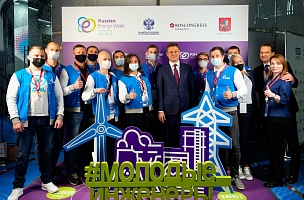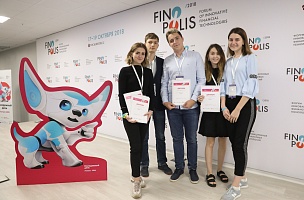KEY CONCLUSIONS
Demand for social skills is growing
“Today, the demand for social skills permeates all the most important federal tasks of the regions, society, and civic chambers,” Natalia Pochinok, Rector, Russian State Social University.
Higher education is an essential factor in the development of citizens and territories
“A university dramatically impacts the area, not only through students but also through a full range of its operations,” Sergey Golubev, Chief Executive Officer, Social Investment Fund.
“Universities as centres of social and innovative development <…> are not only donors of these bright programmes, but also embed social and learning skills, project-focused activities in their educational programmes,” Natalia Pochinok, Rector, Russian State Social University.
Regularly reading citizens is an indicator of the regions’ level of economic development
“In the year when we analysed research on the development of reading infrastructure in the regions of the Russian Federation, we found an apparent correlation: in the regions with a well-developed reading infrastructure, this index directly correlates with the investment attractiveness index. Developing basic reading skills, we affect the future economic success of the region,” Marina Abramova, Vice President, Eksmo-AST Publishing Group; Chairman of the Regional Development Committee, Russian Book Union.
PROBLEMS
Social performance in Russia is underdeveloped
“Russia is far from leading in terms of student involvement in volunteering, in socially-oriented activities. I see the second issue in the fact that volunteering has little effect on career prospects,” Lev Jakobson, Vice President, National Research University Higher School of Economics.
“Important issues are developing the skills and competencies of solving social problems, managing social processes and youth’s hands-on work in such areas,” Victoria Panova, Vice President for International Relations, Far Eastern Federal University (FEFU).
Low reading rate
“The average European reads 12 books a year, and in Russia it’s only three. <…> If a person does not have reading skills, then, unfortunately, when they are in a higher educational setting, they are not capable of embracing even the most innovative programmes the universities offer,” Marina Abramova, Vice President, Eksmo-AST Publishing Group; Chairman of the Regional Development Committee, Russian Book Union.
SOLUTIONS
Implementation of the best NPO practices in the educational process
“’Universities for Civil Society’ is a project when universities <…> welcome best practices of socially oriented NPOs and structure them into understandable guidelines,” Natalia Pochinok, Rector, Russian State Social University.
“Combining the approaches and practices of non-profit organisations, the number of which multiplies, and universities with their resources, takes us to a perfect place,” Artem Metelev, Chairman of the Council, Association of Volunteer Centers; Member of the Public Chamber of the Russian Federation.
Socio-economic policy of the state must meet the current social challenges
“The first issue is true poverty: 38 million poor citizens. We need a class of self-employed. The other way, a critical one, is creating jobs for disabled: 18 million citizens,” Nadezhda Surova, Director, Institute of Administration and Socioeconomic Design, Plekhanov Russian University of Economics.
Motivating students for socially oriented activities
“We must develop empathy in our students. It can be done only through hands-on experience, <…> which is not only and not so much volunteering. It can be a purely entrepreneurial project, but it should be in the spirit of ‘How do I change the world?’, and not ‘How do I make money?” Sergey Golubev, Chief Executive Officer, Social Investment Fund.
“We asked the Government of the Russian Federation to also take into consideration on the Internet portal ‘Work in Russia’ volunteering and, in general, any social skills, experience a person gained during their work for NPOs or charity,” Artem Metelev, Chairman of the Council, Association of Volunteer Centers; Member of the Public Chamber of the Russian Federation.
Students’ immersion in society
“At the moment, the unemployment rate is high, and there is a chance to get the introduction to a work environment as someone who belongs to that category. Or, to avoid unemployment, one can start working at McDonald’s, for example,” Marc Carena, Director General, McDonald's in Russia.
“The elements of a student’s social immersion, their acquaintance with the peculiarities, issues of society, must be an important part of any education, both in school and university,” Alexander Tkachenko, Archpriest; Chairman of the Committee for Philanthropy, Civic Education, and Social Responsibility of the Civic Chamber of the Russian Federation.






